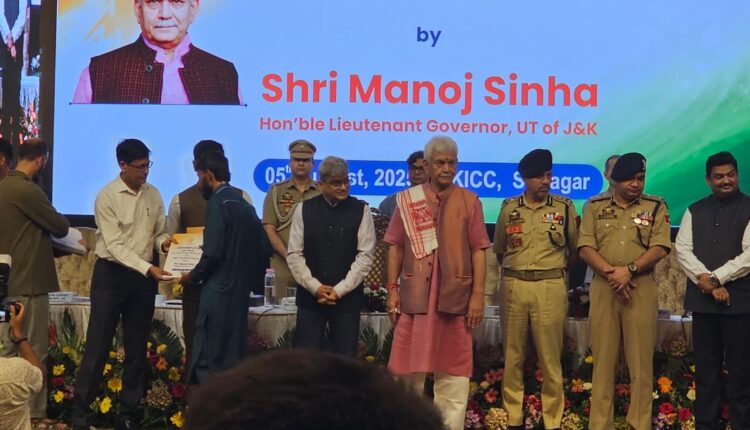“Hearts are feeling like healed”
Convener News Desk
Kupwara/Srinagar, August 5: When Abdul Qayoom Khatana was barely ten, his world crumbled in the remote Dhok of Surkuli in north Kashmir’s Kalaroos area.
His father, Noor ud Din Khatana, a cattle herder, had climbed a tree to cut fresh leaves for livestock. But below, a group of terrorists was waiting.
That afternoon in July 1993, they abducted Noor ud Din and vanished into the forested vastness. Thirteen days later, his bullet-riddled body was found. One shot to the chest. No answers. No arrests. Just a widow, Reshma, and three orphaned children — Qayoom, Bashir Ahmad, and little Rubeen, who was just four.
“We tried everything. We approached everyone — the authorities, the locals, even those who were close to militants. But no one came to our rescue. we couldn’t bring him back alive,” recalled Abdul Rasheed Khatana, the slain man’s younger brother. “Eventually, we were handed a cheque of one lakh rupees. The case was closed. That was it.”
On Monday, 32 years later, Abdul Qayoom Khatana — now a grown man — finally received a job letter from the government, part of a landmark initiative to provide rehabilitation to the Next of Kin (NoKs) of civilians killed in terror violence in Jammu and Kashmir.
The appointment letter was one of 158 distributed by Lieutenant Governor Manoj Sinha during an emotional ceremony held in Srinagar, where families from across the region gathered to share stories of loss and long waits for justice.
“This has been a long battle,” Qayoom said, his voice cracking. “My mother starved at times to raise us. Today’s appointment is not just a job — it is healing, it is dignity, it is recognition that someone remembers what we went through.”
For years, the family said, they moved from one office to another in Kupwara, only to be turned away. “We were told there was no policy for us. No hope,” said Rasheed. “But today, something changed.”
The ceremony marked what the LG called a “watershed moment” in Jammu and Kashmir’s post-conflict rehabilitation efforts.
“Wounds that have persisted for decades are now being healed,” Sinha said, addressing the gathering. “Time did not erase the pain of loss. Invisible scars on their soul can be felt. The long wait for justice is over.”
He also condemned Pakistan’s continued support for cross-border terrorism, saying the day belonged to the “families who suffered silently for decades because of a terror ecosystem that was allowed to flourish.”
For the Khatana family, the long nightmare has not ended, but the burden is lighter.
“It’s a new beginning,” Qayoom said. “We never thought this day would come. It feels like a father’s sacrifice was finally acknowledged. Hearts are feeling like healed”


Comments are closed.